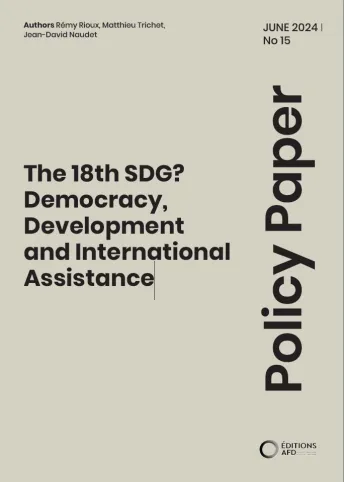Share the page
The 18th SDG? Democracy, Development and International Assistance
Published on

In 2015, the 193 Member States of the United Nations unanimously adopted the 2030 Agenda for Sustainable Development. This agenda begins with a common vision describing the various characteristics of a universally desirable world, in particular “one in which democracy, good governance and the rule of law as well as an enabling environment at national and international levels, are essential for sustainable development, including sustained and inclusive economic growth, social development, environmental protection and the eradication of poverty and hunger.” However, in the 17 objectives and 169 targets of this 2030 Agenda, democracy, unlike all the other characteristics of the common vision, is no longer mentioned. Has an 18th development goal been lost along the way? Or perhaps an enhanced Goal 16, as it refers to good governance and the rule of law, but without however a democratic target.
This absence of democracy among the universal development objectives is the central theme of this research paper which, based on a selective and sequenced inventory of relevant knowledge, questions the role of democracy in development and development assistance through a historical perspective. It concludes with elements of reflection on the future.
Useful Information
-
Authors
-
Matthieu Trichet , Jean-David Naudet, Rémy RIOUX
-
Edition
-
15
-
Number of pages
-
72
-
ISSN
-
2680-5448
-
eISSN
-
2680-9214
-
Collection
-
Policy Papers
-
Other languages
